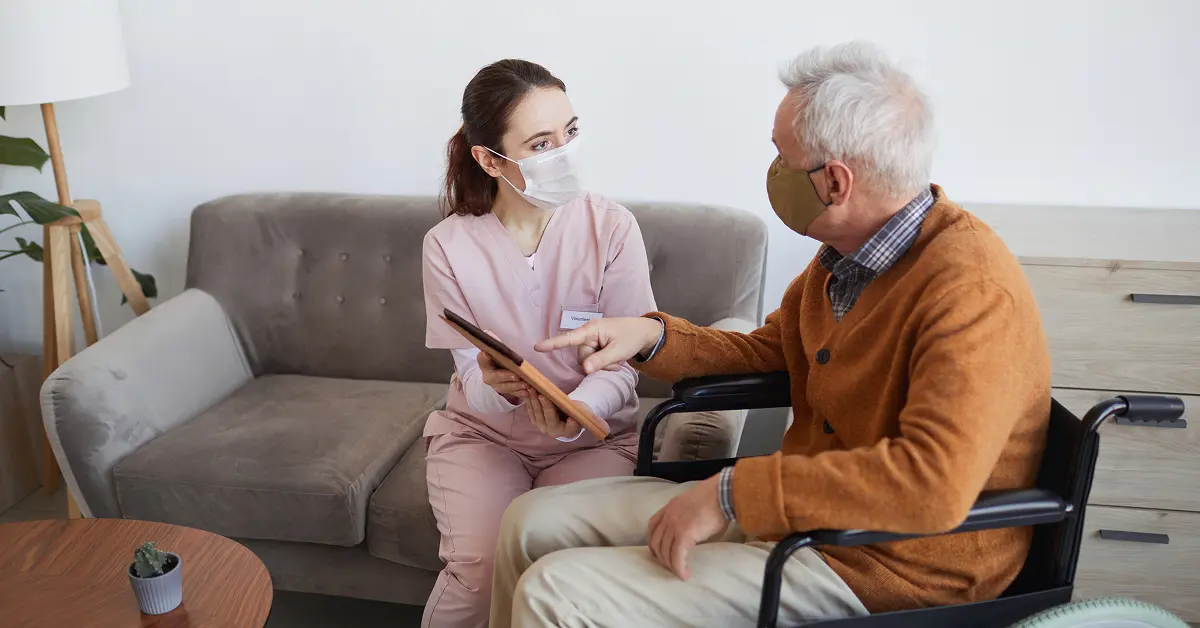Caring for a senior loved one diagnosed with dementia or Alzheimer’s can be deeply emotional and challenging. In India, where family bonds are strong and multigenerational living is common, many families choose to provide care at home. However, dementia and Alzheimer's care requires more than just love—it needs preparation, patience, and practical strategies.
This comprehensive guide explores essential tips and approaches for Indian families to provide safe, compassionate, and effective Best Caregiver Services at Home for seniors with dementia or Alzheimer's.
Understanding Dementia and Alzheimer’s Disease
Dementia is not a specific disease but a general term for the impaired ability to remember, think, or make decisions that interfere with daily life. Alzheimer’s disease is the most common form of dementia. In India, an increasing number of elderly people are being diagnosed with these conditions due to rising life expectancy and better awareness.
Common symptoms include:
- Memory loss affecting daily life
- Difficulty with familiar tasks
- Confusion with time or place
- Poor judgment
- Changes in mood or behaviour
Preparing the Home for Dementia Care
Creating a safe and structured environment is essential. Seniors with dementia are at a higher risk of falls, wandering, and injury.
Home safety tips:
- Declutter rooms to avoid tripping hazards
- Install grab bars and railings in bathrooms and stairs
- Use labels and pictures on doors, drawers, and cupboards
- Lock up harmful items like knives, cleaning products, and medications
- Ensure proper lighting to reduce confusion and prevent accidents
Create a familiar atmosphere with family photos, cultural artifacts, or items that bring comfort. A sense of familiarity can calm agitation and confusion.
Establishing a Daily Routine
Consistency and structure are incredibly helpful for seniors with dementia. Routines reduce anxiety and help them feel secure.
Sample daily schedule:
- Morning hygiene routine (toilet, brushing, bathing)
- Light breakfast
- Short walk or simple exercise
- Activities like music, prayer, or reading
- Lunch and rest
- Evening tea and quiet activities
- Dinner and bedtime routine
Tip: Stick to fixed meal and sleep times to regulate the internal clock and reduce nighttime restlessness.
Communication Techniques
Communicating with someone who has dementia can be frustrating but remember—it’s the disease talking, not the person.
Effective communication strategies:
- Use simple, short sentences
- Maintain eye contact
- Speak slowly and clearly
- Avoid arguing or correcting unnecessarily
- Use gentle touch for reassurance
- Be patient—give them time to respond
In India, speaking in the senior's mother tongue or using familiar religious or cultural references can help make communication easier and more meaningful.
Managing Behavioral Challenges
Seniors with dementia may exhibit behaviors like aggression, wandering, agitation, or repetitive speech. These behaviors are usually triggered by fear, confusion, pain, or discomfort.
Tips to manage difficult behavior:
- Identify and eliminate triggers (e.g., hunger, pain, noise)
- Maintain a calm environment
- Distract with favorite music, food, or photos
- Avoid physical restraints or scolding
- Try to understand the underlying emotion rather than reacting to the behavior
If agitation becomes frequent, consult a doctor. There may be medical or psychological interventions to help.
Activities to Stimulate the Mind
Engaging seniors in gentle activities can help preserve cognitive function and improve mood.
Recommended activities:
- Listening to devotional music or bhajans
- Looking at old photo albums
- Simple art or coloring
- Chanting or prayer sessions
- Gardening or watering plants
- Folding clothes or simple chores
Focus on purposeful and joyful engagement rather than performance.
Nutrition and Health Monitoring
Seniors with dementia may forget to eat or drink, develop food aversions, or have difficulty swallowing.
Feeding tips:
- Offer small, frequent meals
- Use familiar Indian foods that are easy to chew and digest
- Avoid foods that may cause choking (nuts, dry foods)
- Monitor for dehydration, especially in summer
- Sit with them during meals for encouragement
Regular check-ups, medication management, and monitoring for bed sores or infections are crucial.
Supporting the Primary Caregiver
In Indian families, caregiving often falls to a spouse or adult child. This responsibility can be emotionally and physically exhausting. It’s vital to take care of the caregiver too.
Caregiver self-care tips:
- Take regular breaks—ask siblings, friends, or hire a professional caregiver
- Join support groups (online or local NGOs like Nightingales Medical Trust)
- Practice yoga or mindfulness to manage stress
- Don’t hesitate to consult a therapist if overwhelmed
Caregiving is not a one-person job—involve the entire family, including teenagers who can help with light tasks or provide companionship.
When to Consider Professional Help
While many Indian families prefer to care at home, sometimes professional help becomes necessary. This could be in the form of:
- In-home nursing care
- Day-care centres for dementia (available in cities like Bangalore, Pune, Delhi)
- Part-time or full-time caregivers trained in dementia care
Hiring a trained caregiver can ensure proper medical attention, hygiene support, and engagement, while giving the family peace of mind.
Legal and Financial Planning
Don’t wait too long to address legal matters. If your loved one is in the early stage, discuss and document important decisions like:
- Power of attorney
- Bank account nominations
- Will or succession planning
- Access to insurance or government benefits like the Indira Gandhi National Old Age Pension Scheme
Consult a financial planner or lawyer experienced with senior care.
Resources in India for Dementia Care
Several organisations offer support, guidance, and services tailored for Indian families:
- ARDSI (Alzheimer’s and Related Disorders Society of India) – Offers counseling, memory clinics, caregiver training
- Nightingales Medical Trust – Runs dementia care centres in Bengaluru
- Helpage India – Provides medical and homecare support for seniors
- Savera and Dignity Foundation – Community-based programs for elderly care
Use their resources to stay informed and supported.
Final Thoughts
Caring for seniors with dementia or Alzheimer’s at home is a journey filled with challenges, love, and deep learning. With the right approach, emotional support, and community help, Indian families can provide meaningful care and help their loved ones live with dignity.
Always remember: You are not alone. Many families across India are navigating this path. With empathy, preparation, and teamwork, home-based dementia care can become a loving, safe, and enriching experience.
Need help creating a dementia-friendly home or hiring trained caregivers? Contact local Elderly Care Services agencies or NGOs for personalized guidance.
Contents
- Understanding Dementia and Alzheimer’s Disease
- Preparing the Home for Dementia Care
- Establishing a Daily Routine
- Communication Techniques
- Managing Behavioral Challenges
- Activities to Stimulate the Mind
- Nutrition and Health Monitoring
- Supporting the Primary Caregiver
- When to Consider Professional Help
- Legal and Financial Planning
- Resources in India for Dementia Care
- Final Thoughts
Our 24*7 services
Latest Posts
- What Is Respite Care and Why Is It Important
- Affordable home care for senior citizens in India
- Caring for Seniors with Dementia or Alzheimer's at Home
- Senior Caregiving A Guide for Every Family
- How to Write a Caregiver Resume That Gets You Hired
- How Care After Hospital Discharge Speeds Up Recovery at Home
- How to Get Home Health Care for Seniors Through Medicare
- What Does a Senior Citizen Caregiver Really Do at Home
- How to Care for Elderly Parents with Alzheimer’s or Dementia
- How to Get 24-Hour Care for Seniors at Home



